
“And there was war in Heaven: Michael and his angels fought against the Dragon; and the Dragon fought and his angels, and prevailed not, neither was their place found any more in Heaven.” Archaic sentences here and there in the world’s scriptures tell us of the wars that were waged in Heaven before the beginning of time, and of the heritage—dim, prehistoric, supernatural in the natural — that was left from them to men and gods.
What is it that makes this element of mythology so clear, what force has raised it in this one case to the significance when it attains in the Chandi portion of the Markandeya Purana? This is, above all others, the Purana of Bengal. But here the central figure of the drama is no archangel, mighty in power and beauty, but the Mother herself, personification of the creative energy, focus and centre of the visible Universe. Back and forth amidst the applause of Heaven does She pursue the ever-changing demons, and at the moment of her triumph, when, ten-armed, pedestaled on the living lion and sword in hand, She subjugates her foe for ever, She is portrayed as the image of Durga. Such is the story told by the scripture— half epic, half-liturgy—from which are taken the texts that are recited over and over again from one end of Bengal to the other, with worship and fasting, throughout the great nine days, from the new moon of Ashwin, until Dussera or tenth day. Here and there are those—monks in their monasteries, perhaps, or Brahmins in their homes—who recite the whole of the Chandi again and again. But for all alike, whether they do this or not, there is but one object of contemplation—the wars that were in Heaven; one hope, and one alone—the conquest of the demons by the gods.
This story is from the October 2020 edition of The Vedanta Kesari.
Start your 7-day Magzter GOLD free trial to access thousands of curated premium stories, and 8,500+ magazines and newspapers.
Already a subscriber ? Sign In
This story is from the October 2020 edition of The Vedanta Kesari.
Start your 7-day Magzter GOLD free trial to access thousands of curated premium stories, and 8,500+ magazines and newspapers.
Already a subscriber? Sign In

Panchakroshi Parikrama of Varanasi
At the snow-capped Kailas, the Divine Lord Shiva was seated with Mother Parvati.
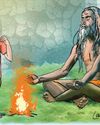
Gadai and the Monks
A fictional narrative based on incidents from the childhood of Sri Ramakrishna.

Chintayo momo maanosho Hori...
Sri Ramakrishna loved songs. There probably was no normal day when he did not sing some songs.
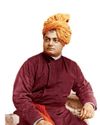
The Vedanta Vaccine
The world is still struggling under the impact of the pandemic due to Covid-19 for the last three years.
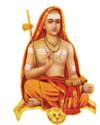
Chandrakirti's Chariot: Self in Madhyamaka Buddhism and Advaita Vedanta
The goal in Advaita Vedanta is the cessation of suffering and the attainment of true fulfillment. Suffering, according to this school, is due to ignorance of the true nature of the self and consequent erroneous identification with the body-mind.

Reminiscences of Sargachhi
Question: यद्यदाचरतत श्रेष्ठसतत्तदरेवरेतरो जनिः। ‘Whatever a superior person does, others do the same thing!’ (Gita 3:21) – What does this statement mean?
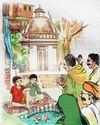
THE AUTUMN FESTIVAL
A fictional narrative based on incidents from the childhood of Sri Ramakrishna.
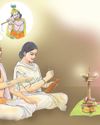
Bards of Guruvayur: Vilwamangalam II
Saints of India
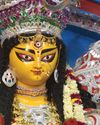
In the Universal Mother’s Divine Playground
Swami Vivekananda never taught the worship of Mother Kali. In a letter to Mary Hale he writes, “Kali worship is not a necessary step in any religion.
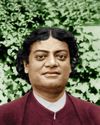
Swami Vivekananda: A Sportsman Par Excellence
In various books and articles, Swami Vivekananda has been called a spiritual leader, a prophet, a patriot, a social reformer, a philosopher, a yogi, a writer, an orator, an educationist, a musician, and so on.